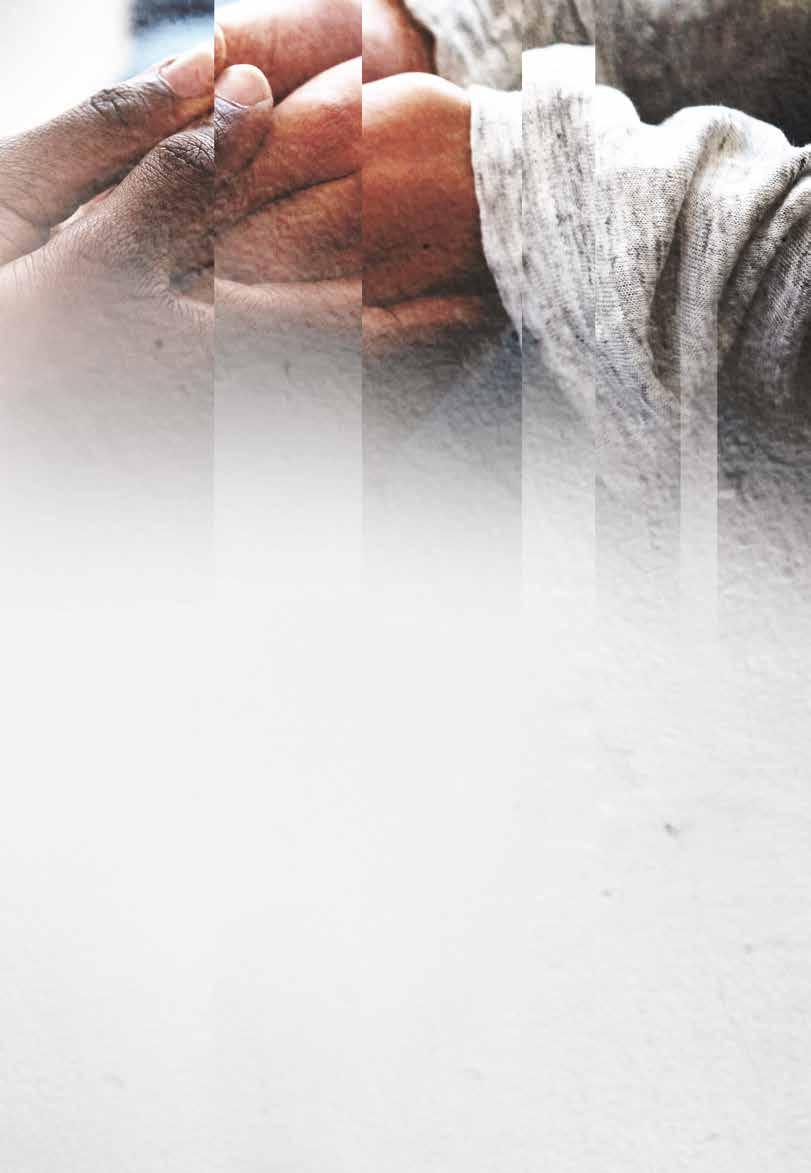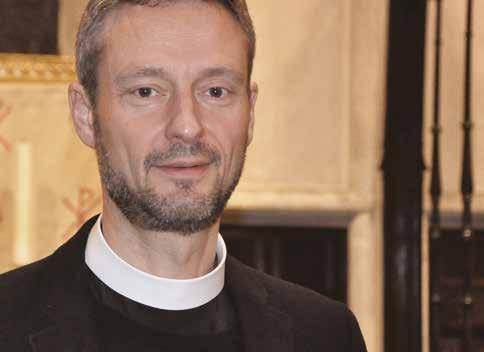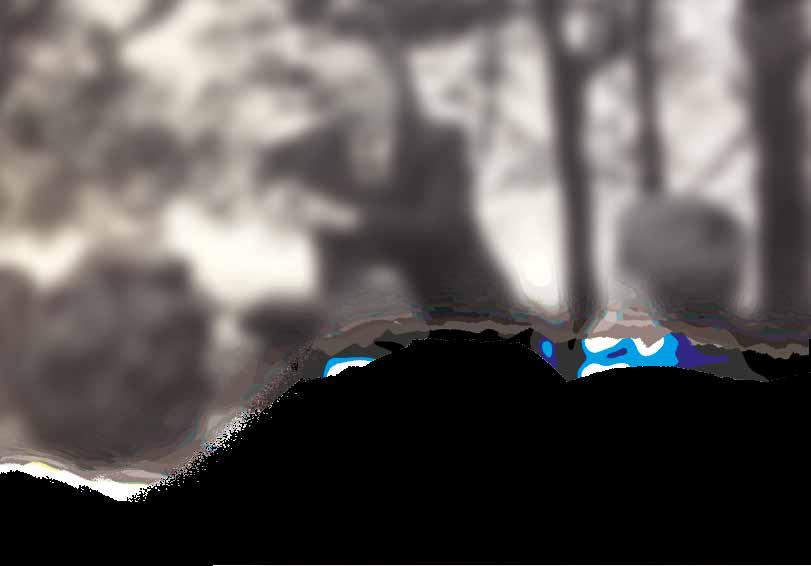
6 minute read
Life after abuse
but he recognises that it doesn’t always. dealing with an awful lot of broken people, Attitudes that he came across in one and I realised that I needed to go back to church some years ago almost stopped my original calling and take up the reins him from doing the work he does today. that I’d let drop,’ he says.
Giles came to the Christian faith at the After starting work as a therapist again, turn of the millenium. Giles founded a charity. Breakthrough
‘My life was in a bit of chaos – works across the southwest of England psychotherapists can have their lives in a with adult survivors of trauma, offering mess too,’ he says. ‘And I had a Christian psychotherapy, support groups, colleague who witnessed to me. I heard mentoring and befriending. It also a meaningful message and began to provides training for churches and other read the Bible to check out what was organisations to help them become more being said. What got me aware of trauma and its was Jesus as the good shepherd. I had a sense that You cannot impact, enabling them to offer survivors effective there was someone bigger than me who looks after recover on support. Breakthrough: The Art everyone – the broken, the lost, the hurting. I thought: your own of Surviving is one of the many resources made I need someone like this in available by Giles not my life.’ only as a Christian and
So Giles began attending a church and a psychotherapist, but as a survivor of experienced positive change, but some of trauma himself. the people he met did not agree with his ‘I have had to go on my own very being a psychotherapist. ‘The Christians long journey of healing from sexual and I met weren’t that enthusiastic about emotional abuse,’ he says. ‘I took the first my work, and I found that confusing,’ step when friends pointed out that some he says. ‘They said you don’t need all of the ways I reacted to things were not that psychology stuff, you’ve got Jesus the norm. I realised my behaviour was now. They didn’t understand that there coming out of deep wounds. is a need for people to heal at all sorts of ‘I did a lot of therapy and a great deal levels – not just spiritual, but emotional of healing. But after coming to faith I and mental as well.’ discovered there were still wounds that
Giles did get a different job in a were unhealed. On that journey, my faith homelessness charity. He also became felt tenuous, but there was always a sense part of a team setting up a new church in that no matter how rocky the journey, a deprived area. ‘We found that we were there was someone who had hold of me
and no matter how bad it got, I wasn’t going to fall.’
He advises survivors to take a first step towards healing by finding a safe person to talk with.
‘You cannot recover on your own,’ he says. ‘Find friends or family willing to walk with you, and also somebody who is objective and has specific training to help you through.
‘A lot of healing can take place without any faith, but I do think a sense of something bigger than ourselves is necessary to take people beyond a certain place of healing. Even before I came to faith, I realised that I didn’t have all the answers, but somebody must. I think deep down we all hope that there is a wholeness greater than us. And for me, Jesus is the one who makes every broken thing whole.’
l Breakthrough: The Art of
Surviving is published by
Instant Apostle
evidence Within reason



Edward Carter
For 150 years, the Christian Evidence Society has been arguing the case for Christianity. Its chair, the Rev Canon EDWARD CARTER, talks with Philip Halcrow about Darwin, debates and why Richard Dawkins ‘has defined his parameters wrong’
ITS origins were in the era of Charles
Darwin, so it seems appropriate that its present chair, the Rev Canon Edward Carter, tells me: ‘The good thing about the Christian Evidence Society is that it has evolved quite creatively.’
Edward explains how the society, which discusses and argues for the Christian faith, began in 1870 and has continually found new ways to commuicate its message, so that it is now celebrating its 150th anniversary. ‘Early on, there were some big public events, and that was in the first flush of the Darwin debates and the discussions about science and religion,’ he says.
‘It’s easy to overdramatise it, but at the time there was a sense in which some of the old certainties of faith were under attack. There were a variety of responses. Some people in the churches pulled up the drawbridge and said: “You can’t interfere with our spiritual insights. We just know we’re right.” Others realised that such an approach wasn’t going to work in terms of trying to explain the faith.
‘The basis of the Christian Evidence Society was that, by discussion, debate
The Christian Evidence Society used a van with a fold-down pulpit
and presentation of ideas, it would that it is not only the specific topics up be possible to talk about the faith in a for discussion that have changed. The reasoned way. It has been about seeing Christian Evidence Society’s methods what philosophical and theological have too. It previously would appear issues the world is talking about and then at open-air gatherings where it would beginning a conversation. Doing that has engage with the ‘freethinkers’. It once meant different things in different eras, owned a van that had been modified because what people are talking about to feature a fold-down pulpit. It has has changed over the past 150 years.’ published booklets in print and more
Earlier this month, recently online. the group’s Facebook page hosted a live Our work is not ‘Nowadays,’ says Edward, ‘instead discussion with theologian NT Wright about God and the coronavirus. A series about presenting mathematical proof of soapboxes on Speakers’ Corner, we have a website and social media.’ of lectures scheduled Through these, the to take place to mark the society’s 150th society draws attention to archaeological anniversary – but inescapably cancelled finds, philosophical discussions and – was due to have explored quotes that scientific discoveries to make the case have gained widespread attention over for Christianity. the past few years, including journalist Edward explains that the group’s Christopher Hitchens’s assertion, ‘Religion work is not about presenting ‘some poisons everything’ and comedian mathematical proof of God’ but of Stephen Fry’s questioning, ‘Why should exploring ‘reasonable ways in which we I respect a capricious, mean-minded, can understand the spiritual aspect of life’. stupid God who creates a world which is What constitutes Christian evidence? so full of injustice and pain?’ ‘Different people would start in different
The Facebook live stream highlights places,’ says Edward. ‘One person would






